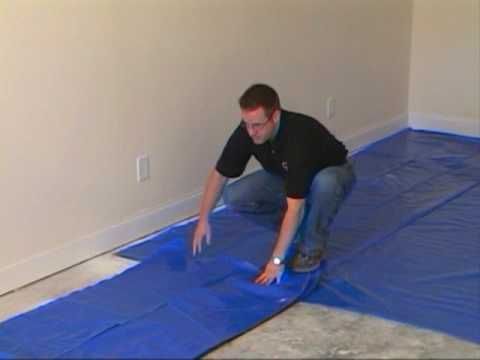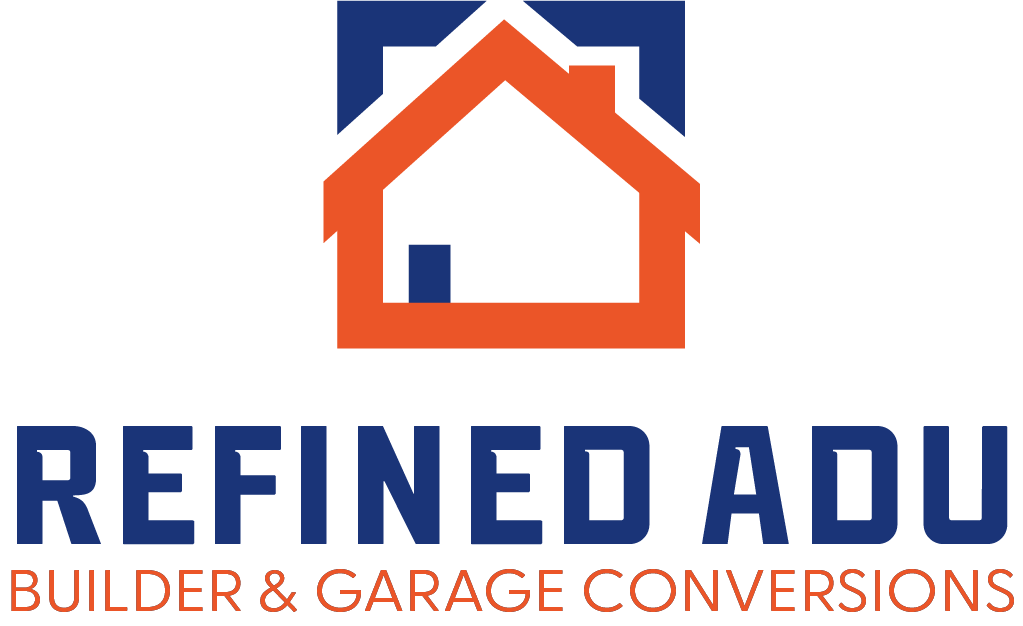Concrete Slab Leveling and Moisture Barrier Installation
At Refined ADU Builder & Garage Conversions, we focus on garage concrete slab leveling and moisture barrier installation that keeps your space rock-solid and bone-dry for years to come. Many homeowners don't realize their garage floor problems can be fixed until serious damage occurs. Our specialized equipment can detect issues invisible to the naked eye, stopping problems before they turn into expensive disasters.
Leveling your concrete slab stops those spreading cracks and annoying uneven floors that trip you up and damage your tools, while our high-performance moisture barriers block damaging water that silently creeps up through concrete, preventing rot, rust, and that musty smell that never goes away. Unlike quick-fix solutions that fail after one season, our professional-grade barriers create a permanent seal between your concrete and the damp soil below.
We know that a stable, dry garage foundation is essential to protecting both your property value and your family's safety. Garage floor problems rarely stay contained - they can spread to your home's structure, damage stored items, and create slipping hazards. Our experienced team uses field-tested methods to correct stubborn slab issues and install moisture barriers that truly work in your local soil conditions. We've rescued garages that other companies claimed couldn't be saved.
Whether you want to improve your garage's appearance for better resale value or prepare it for exciting future projects like a home gym or workshop, we deliver
concrete slab leveling and moisture barrier installation services that ensure long-lasting durability and real peace of mind.
Moisture Barrier Installation for Garages
Moisture barriers help keep water from seeping into your garage floor. They protect the concrete slab from damage and reduce mold and mildew risks. Using the right materials and installation methods is key to lasting results.
Importance of Moisture Control
Moisture control prevents water from damaging the garage slab. Water can cause cracks, weaken the concrete, and lead to mold growth. Mold and mildew can cause health issues and unpleasant smells.
Keeping moisture out also extends the life of the garage floor. It stops water from freezing and thawing under the slab, which can cause shifting or sinking. Proper moisture control reduces repair costs over time.
Types of Moisture Barriers Used
We use several types of moisture barriers depending on your garage needs. The most common are polyethylene plastic sheets and liquid-applied membranes.
Polyethylene sheets are thick plastic rolls placed under the slab. They block water from rising through the concrete. Liquid membranes are painted on the slab surface and form a water-tight layer.
Both types work well when installed correctly. We select materials based on your soil type, climate, and slab condition.
Installation and Best Practices
First, we prepare the ground by leveling and compacting the soil. Next, we lay the moisture barrier material smoothly across the area.
For plastic sheets, seams get sealed with special tape to prevent leaks. We overlap the edges to ensure complete coverage.
If using liquid membranes, we apply a primer, then coat the surface evenly. The area must stay dry until the membrane cures.
We always check the barrier for holes or weak spots before pouring concrete. Proper installation helps the slab stay strong and dry for years.

Concrete Slab Leveling Methods and Technology
We use different methods to lift and level concrete slabs depending on the situation. Each technique has its strengths and works best in specific conditions. Understanding these methods helps us choose the right one for your garage slab.
Polyurethane Foam Injection
Polyurethane foam injection is a modern, fast method to raise sunken concrete. We drill small holes into the slab and inject expanding foam underneath. As the foam expands, it lifts the slab to the desired level.
This foam is lightweight but strong, making it good for preventing future sinking. It also fills voids under the slab, improving soil support. The process dries quickly, so the area is ready to use in a few hours.
This method is less invasive and causes minimal damage to landscaping or driveways. Because the foam expands, we can make precise adjustments until the surface is even.
Mudjacking Technique
Mudjacking is a more traditional method where we pump a mixture of water, soil, sand, and cement beneath the concrete slab. This mixture, called slurry, fills the gaps under the slab and pushes it up.
We start by drilling holes or using existing cracks to inject the slurry. Once pumped in, the weight of the slab lifts as the slurry fills space beneath it. The mixture then hardens to support the slab.
Mudjacking usually works well for heavier slabs or larger areas. It is less expensive than foam injection but takes longer to cure. It can cause more disruption to landscaping since it requires larger holes and more material.
Laser-Guided Leveling Equipment
To ensure precise results, we use laser-guided leveling equipment during all slab leveling projects. This technology gives us exact measurements of the slab’s height across the entire surface.
The laser system helps us find low spots and monitor adjustments in real time. This means we can lift the slab evenly and avoid over- or under-correcting the surface.
Using laser-guided tools improves accuracy and speeds up the job. It also helps us create a smooth, level finish that meets your garage’s needs exactly.
Why Trust Us
We focus on precise concrete slab leveling and effective moisture barrier installation. Our team is skilled in handling these tasks to ensure strong, lasting garage floors.
Expertise in Concrete Services
We specialize in concrete slab leveling for garages and ADUs. Our methods fix uneven slabs caused by soil movement or wear. This helps prevent cracks and water damage.
We also install moisture barriers under the slabs. This stops moisture from rising into the concrete, reducing mold and mildew risks. The barriers improve the durability of your floor.
Our experience allows us to handle projects of different sizes. We use modern equipment and proven techniques to deliver quality results that meet industry standards.
Licensed and Insured Professionals
We are fully licensed to perform concrete and construction work in our service areas. This means we meet all local safety and quality regulations.
Our team is insured to protect both you and us during the project. You can trust that we follow professional guidelines and maintain safety on site.
We make sure to update our credentials regularly. This commitment shows we prioritize responsible, trustworthy service for every client.
FAQS on Concrete Slab Leveling and Moisture Barrier Installation
How can I ensure proper leveling of a concrete slab for a garage conversion?
We start by assessing the slab for cracks, sinking, or uneven areas. Then, we use specialized equipment to lift or fill low spots. Proper drainage and firmness are also checked before finishing the leveling process.
What are the steps involved in installing a moisture barrier during a garage conversion?
First, we clean and prepare the slab surface. Next, we lay down a high-quality plastic or vapor barrier sheet. We carefully seal all seams and edges to prevent moisture from coming through the slab.
Is a moisture barrier necessary for all garage conversion projects?
A moisture barrier is crucial in areas with high humidity or if the slab shows signs of moisture. It helps protect flooring, insulation, and indoor air quality. We evaluate each project to decide if a barrier is needed.
Can you handle both the leveling and moisture barrier installation?
Yes, we provide complete services for slab leveling and moisture barrier installation. Our team coordinates both tasks to ensure a smooth and effective garage conversion.
How does climate affect the installation of a moisture barrier in a garage conversion?
In wetter climates, a moisture barrier is more critical to prevent damage from humidity and groundwater. In dry areas, the need may be lower but still depends on slab conditions. We adapt our approach based on local weather patterns.
